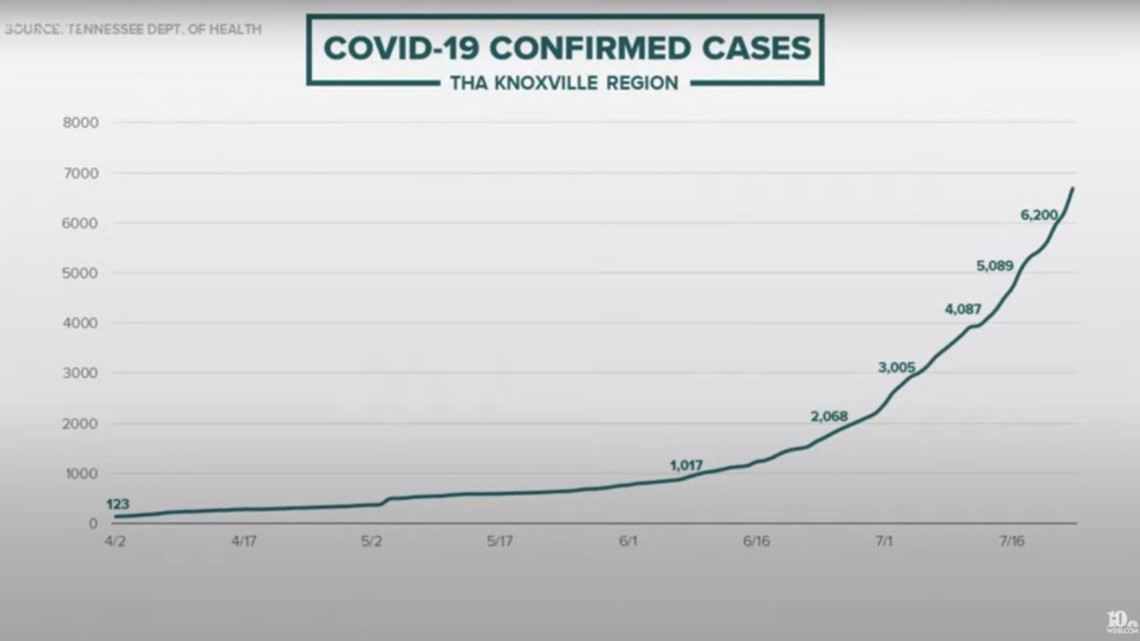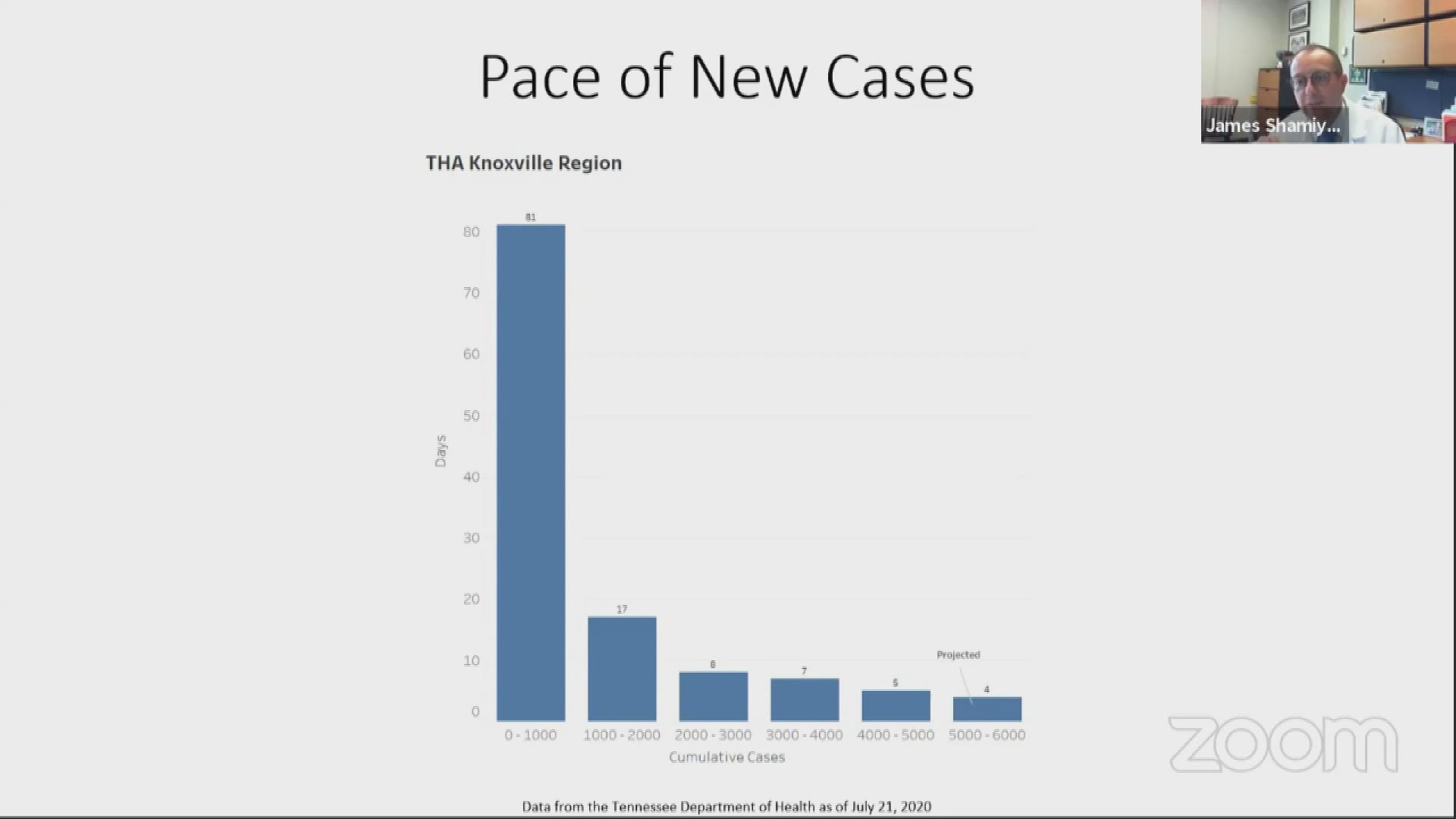KNOX COUNTY, Tenn — Thursday was another record-breaking day for East Tennessee. Knox County reported 187 new confirmed cases of COVID-19.
Sevier County set a new daily high with 94 snd so did Anderson County with 39, Jefferson County with 28 and Roane County with 31 new confirmed cases.
While a single day of data doesn't show the bigger picture, health leaders are raising concerns about the increasing numbers.
At the Knox County Board of Health meeting Wednesday, Dr. James Shamiyeh of UT Medical Center said about 51 of every 1,000 cases in East Tennessee require hospitalization.
"A lot of this conversation ultimately becomes about the capacity of the health care system to be able to take care of these patients," Dr. Shamiyeh said. "We're affected, indirectly, by all the counties that are around us from a health care perspective."
The Tennessee Hospital Association's "Knoxville District" includes 11 different counties: Knox, Anderson, Blount, Cocke, Campbell, Claiborne, Grainger, Hamblen, Jefferson, Sevier and Union counties.
It took 91 days, from March 12 - June 10, for those counties to reach a total of 1,000 confirmed cases. Then it took 18 days, from June 11 - June 28, for those counties to reach a total of 2,000 confirmed cases.
It took seven days to reach 3,000 cases, eight days to reach 4,000 cases, four days to reach 5,000 cases and five days to reach 6,000 cases.
If cases continue at that rate, there could be 51 additional COVID-19 patients in the hospital every four days. As of Tuesday, hospitals in the Knoxville District and in five additional counties only had 43 ICU beds left to share.


"It's a small fraction of people who get the disease who need to be in the hospital," said Dr. David Aronoff, Director of the Division of Infectious Disease at Vanderbilt University Medical Center. "But when the total number of people with the disease is very high, that can put additional stress and strain in hospitals that are already pretty full caring for people who don't have COVID-19."
Dr. Aronoff said one of the biggest areas of concern among health professionals is silent transmission.
"This is a disease that is not simply limited to being transmitted from someone with symptoms to somebody else," he said. "We're seeing a lot of transmission from people who don't know that they're infected."
That is why handwashing, wearing masks and social distancing are more important than ever.
"Each of us right now needs to really be behaving as if we could be infected right now," Dr. Aronoff said. "Our actions, even if we're young and healthy, need to be motivated by protecting those who are vulnerable."

